As a small business owner, you wear many hats – from managing inventory to providing top-notch customer service, your plates are always full.
You may believe that using a CRM (Customer Relationship Management) application for a small business is unnecessary. There are only a few people who work within the business, and the number of clients is limited.
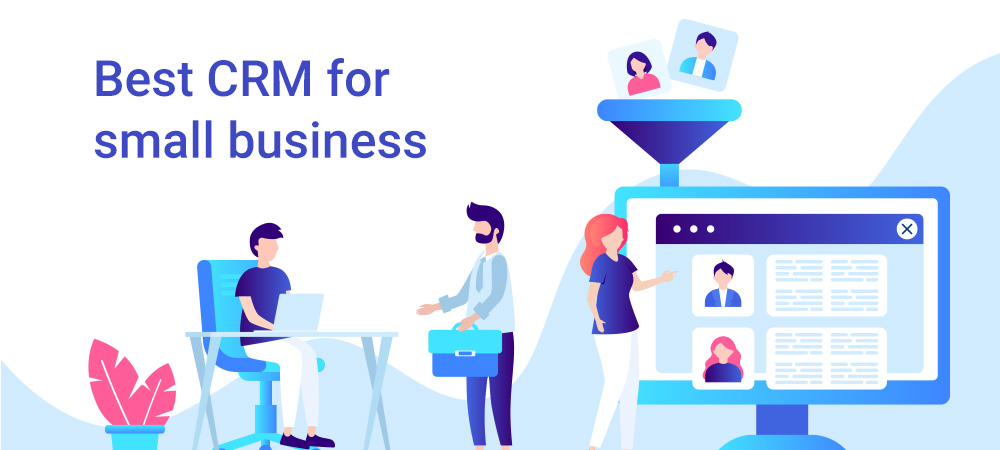
What possible benefit could a CRM offer? Let me tell you why and how small businesses can grow and scale with the best CRM software. Let’s get the basics first:
What is Customer Relationship Management (CRM)?
Customer Relationship Management (CRM) is a business strategy that focuses on building and maintaining strong relationships with customers to drive growth, revenue, and customer satisfaction. At its core, CRM involves using technology, such as CRM software, to manage and analyze customer interactions and data throughout the customer lifecycle.
This approach helps businesses better understand their customers, anticipate their needs, and provide personalized experiences that foster loyalty and long-term engagement.
CRM is a holistic approach encompassing sales, marketing, and customer service activities to provide a seamless customer experience. It involves collecting, storing, and analyzing customer data to gain insights into customer behavior, preferences, and needs. By choosing the right CRM solution, businesses can automate tasks, enhance sales and marketing efforts, and ultimately improve business operations.
How can you keep your customer relationship management strategy relevant in a changing market? By leveraging data, businesses can tailor their interactions and offerings to meet each customer’s unique requirements, ultimately enhancing satisfaction and driving growth.
Benefits of using a CRM for small businesses
Using a CRM can bring numerous benefits to small businesses, including:
- Improved customer relationships and loyalty: By keeping track of customer interactions and preferences, businesses can provide more personalized and timely responses, fostering stronger relationships and loyalty.
- Increased sales and revenue: CRM software helps identify high-potential leads and streamline the sales process, leading to higher conversion rates and increased revenue.
- Enhanced customer service and support: A centralized database of customer information allows support teams to quickly access relevant details, providing faster and more effective assistance.
- Better data analysis and insights: CRM systems offer powerful analytics tools that help businesses understand customer trends and behaviors, enabling data-driven decision-making.
- Improved marketing and sales efficiency: CRM software’s automation features can streamline marketing campaigns and sales activities, saving time and reducing manual effort.
- Increased productivity and reduced costs: CRM software boosts productivity and reduces operational costs by automating routine tasks and providing a unified platform for all customer-related activities.
- Enhanced project management: CRM systems with integrated project management features allow users to assign tasks, track progress, and streamline communication among team members, enhancing efficiency, collaboration, and organization of tasks.
A CRM platform allows all the people in your organization to gain visibility on your business processes, which fosters better collaboration among team members from different areas of your business. By using CRM software, businesses can streamline their sales, marketing, and customer service activities, improve customer relationships, and drive growth and revenue. This powerful tool not only enhances efficiency but also provides the insights needed to make informed decisions and stay ahead in a competitive market.
How Does CRM Software Work?
CRM software is a powerful tool designed to help businesses manage customer interactions and data in a centralized and organized manner. It typically includes features such as contact management, sales pipeline management, marketing automation, and customer service tools. By using CRM software, businesses can track every interaction with their customers, from initial contact to post-sale support.
This comprehensive tracking allows businesses to analyze customer data, gain valuable insights, and make informed decisions that enhance the customer experience. For instance, CRM software can automate routine tasks, such as sending follow-up emails or scheduling calls, freeing up time for sales teams to focus on closing deals. Additionally, it can provide a clear view of the sales pipeline, helping businesses identify bottlenecks and opportunities for improvement.
Overview of CRM software and its features
You may be wondering what features to look for in a CRM for small businesses. CRM software comes packed with a variety of features that help businesses manage customer interactions and data effectively. Some of the most common features include:
- Marketing automation: This feature allows businesses to automate marketing campaigns and track their effectiveness. It can help in segmenting customers, personalizing marketing messages, and measuring campaign performance.Marketing teams can benefit from a CRM for small businesses, especially when working on a budget. They’ll be able to automate marketing emails and segment lists of potential customers.

- Contact management: This feature allows businesses to store and manage customer contact information, including names, addresses, phone numbers, and email addresses. It ensures that all customer data is easily accessible and up-to-date.
- Sales pipeline management: This feature enables businesses to track and manage sales opportunities from lead to close. It provides a visual representation of the sales pipeline, helping sales teams prioritize their efforts and close deals more efficiently.
- Customer service tools: This feature helps businesses manage customer service requests and provide timely support. It ensures that customer issues are resolved quickly and effectively, enhancing customer satisfaction.
- Reporting and analytics: This feature provides businesses with the ability to track and analyze customer data. It offers insights into customer behavior, sales performance, and marketing effectiveness, helping businesses make data-driven decisions.
It Might Not Always Be This Way
The mindset of a small business owner is often contradictory. There is always a willingness and desire for growth—often on a massive scale—but this is countered by a perception that even when this growth occurs, everything will remain the same—there will just be more orders coming in every day.
The problem is that as your business grows, many things are likely to change, including the number of staff members you employ and the number of customers you serve.
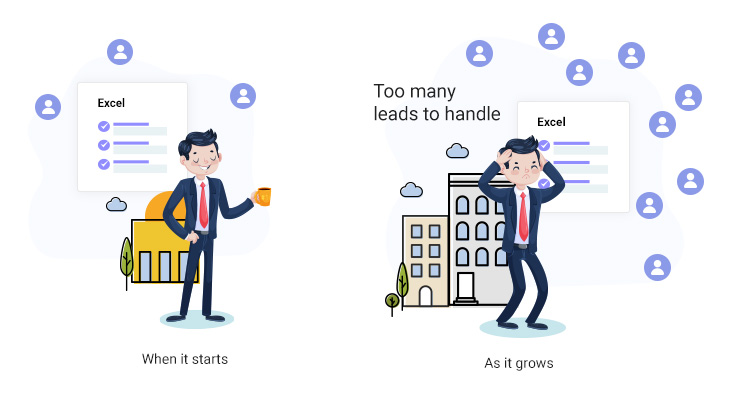
Not only will it become impossible to remember all the details of every customer, but you’ll also have staff members who have never dealt with your existing customers before. Without a CRM, you’ll have a very difficult time keeping up with what is expected of you.
A CRM will allow you to store every little detail about your customers. This begins with their contact details and ends wherever necessary. A web and sales-process integrated CRM can pull information from email and website interactions, building a picture of your customer before you’ve even dealt with them in person.
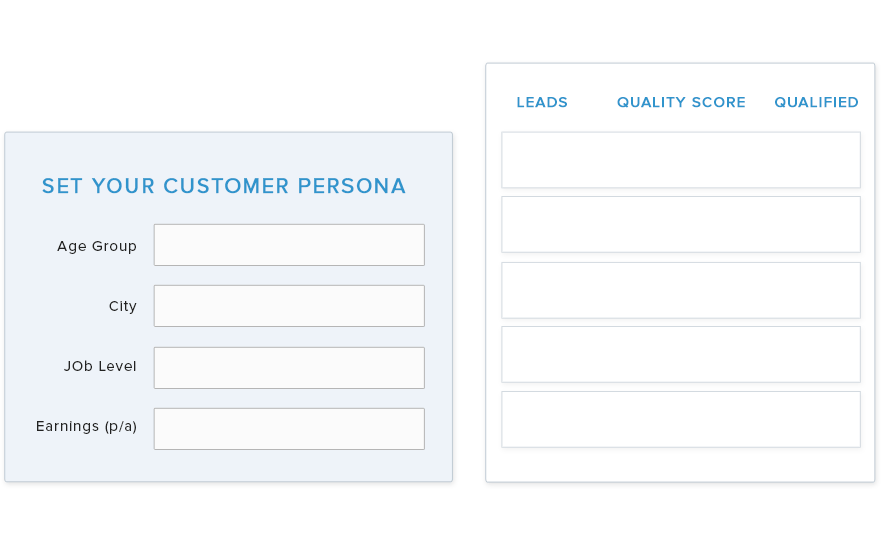
Whenever a member of your sales team talks to the customer, they can reference the information stored in the CRM database and add to it as needed. This means that the customer gets to talk to someone who already knows their needs (and potentially their purchase history), and the salesperson gets to talk to a customer with a little knowledge about what they need. It’s much easier than starting from the beginning every time, reducing customer frustration and salesperson stress.
A CRM system centralizes customer information, supports various departments, and aids in sales and marketing efforts to foster better business relationships and drive growth.
The Best Small Business CRM Software Features
The bare minimum a small business CRM software will need to record is the name and contact details of the customer, along with an outline of their interests. However, the more information you can collect, the better, as it will provide a comprehensive outline of everything the customer is about.
If this can be automated, so much the better. This goes both ways, as information gleaned from website and email actions will help the salesperson but calls and emails can automatically be requested by the CRM based on particular customer actions or requirements. You can prioritize ease of use and workflow automation. The best CRMs integrate with tools you already use.
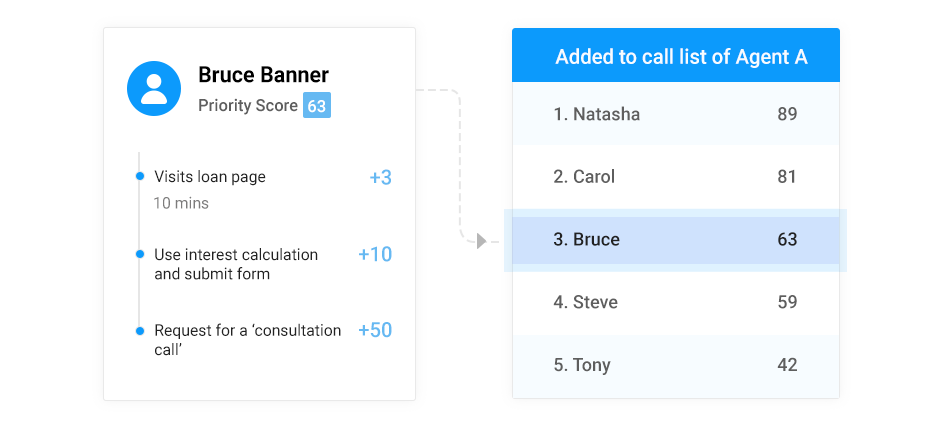
Better yet is a CRM that identifies the potential a customer has to buy. There will be certain indicators that one customer is more likely to buy than any other. This may be from the way they initially found you, or the way in which they look around your website. It might be how often they call, or the subjects they speak about – it varies from business to business.
By configuring the CRM to identify these factors, every lead in your database can be given a score – the higher the score, the more likely the person is to be your next buyer.

The sales team can be directed towards these high-scoring leads to work on them as a priority. Lesser the time is taken to call, higher the propensity to convert.
Your sales and marketing teams that will take advantage of a CRM with comprehensive lead management. Whether you need to focus on lead scoring or better serving your customers, a CRM for small businesses should help you close deals.
1. Able to run on multiple platforms
If your CRM only runs on a desktop computer, you’re severely limited to what you can do with it. All calls must route to a place that has a desktop computer with the software installed, otherwise the CRM database cannot be accessed.
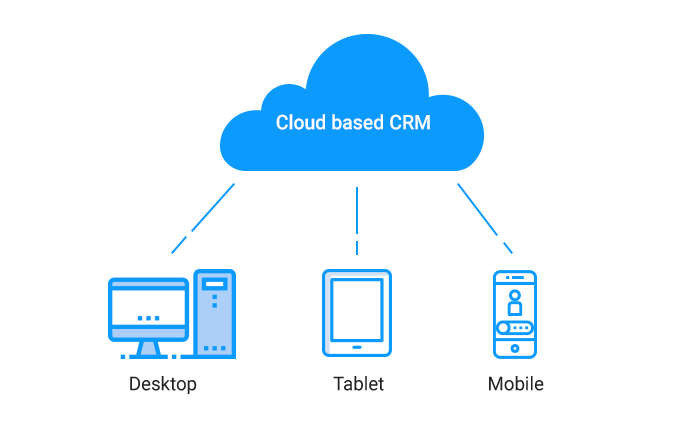
A cloud-based approach goes some way to alleviate this problem, as it can be viewed on any computer with an internet connection. It becomes virtually platform-independent and can be shared with a larger and more diverse sales team. It may be that every member of your sales team works at a different location, but shares the same pool of customers, so it becomes important to be able to share this information.
Better still is the ability to use a mobile app. This means calls can be made and received anywhere with full access to the CRM that syncs with the web version. Should the customer call back and get through to a different sales team member, they can continue their conversation as all the relevant information will be available to this salesperson too.
2. Able to connect multiple teams
If your company deals with multiple products, there may be sales team members who are better suited to working with certain products. Leads can be assigned to these salespeople as needed through the intelligence of the CRM.
This will make your sales process more effective as customers will deal with the experts on the products they are interested in, making it easier for them to get the answers they need to make informed decisions on purchasing.
3. Able to automate sales processes
As you have seen above, information can be collected automatically to build a profile of your leads and customers, but that’s not all. Workflow automation can work the other way, adding tasks ts to the sales team task list if the customer needs to be called or emailed with more information.
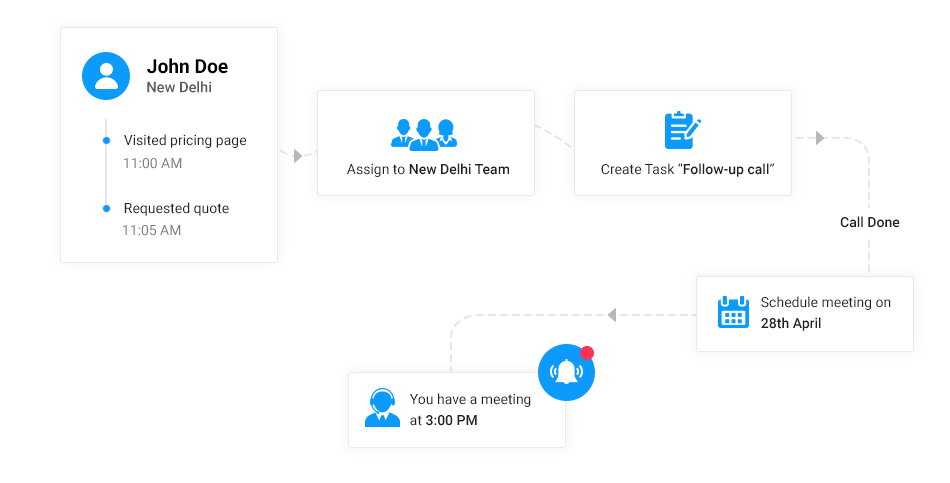
You can schedule meetings and track your field team to ensure they arrive on time. They can also add meeting notes to the CRM database, further enhancing the service the customer will get the next time they are in contact.
Does my Business Need CRM Software?
If you want to make sales regularly and have happy customers, the answer is undoubtedly “yes”. If you have a single salesperson and a single customer, you might be able to get away without using any kind of customer relationship management software, but the moment you grow beyond that, you’ll need to start keeping track of everything.
And, of course, even if you do only have one salesperson and one customer, the automation features alone will help to make sure sales are made.
Trying to run an effective business without using CRM software is like trying to call someone and guessing the digits of their number. You might get through in the end, but the result is never as good as it could have been if you’d had all the information to start with.
In essence:
Data-driven decision-making is a key part of CRM software. By analyzing trends and metrics from customer interactions, businesses can identify areas for improvement, spot potential issues, and adjust their strategy accordingly. This means organisations can be proactive rather than reactive and get ahead of the competition.
Plus, CRM software often has tools to track sales performance and monitor marketing campaigns. These features give you valuable feedback on what’s working and what needs tweaking. By using these insights, businesses can refine their approach, allocate resources more effectively and get more ROI.
CRM software is a one-stop-shop for businesses to manage their customer relationships, streamline their business and grow. Investing in a CRM system simplifies and enables informed decision making for long term success.
There’s really nothing to lose. We recommend that you explore CRM platforms to see which features align best with your company’s CRM goals. With just a few clicks, small businesses can construct multi-step campaigns, nullifying the steep learning curve often associated with CRM platforms.
10 CRMs for Small Businesses
CRM software is a must-have for all businesses, big or small, especially when it comes to managing customer data and optimizing marketing and sales processes. In today’s competitive world having a structured approach to customer relationships is key to success.
For small businesses, choosing the right CRM can make a big difference. Here are 10 CRM’s you can choose from:
1. HubSpot CRM
Features:
- Contact management
- Email tracking and notifications
- Sales pipeline management
- Integration with other tools
Why it’s great: Easy to use and has all the features for a business just starting out with CRM.
2. LeadSquared
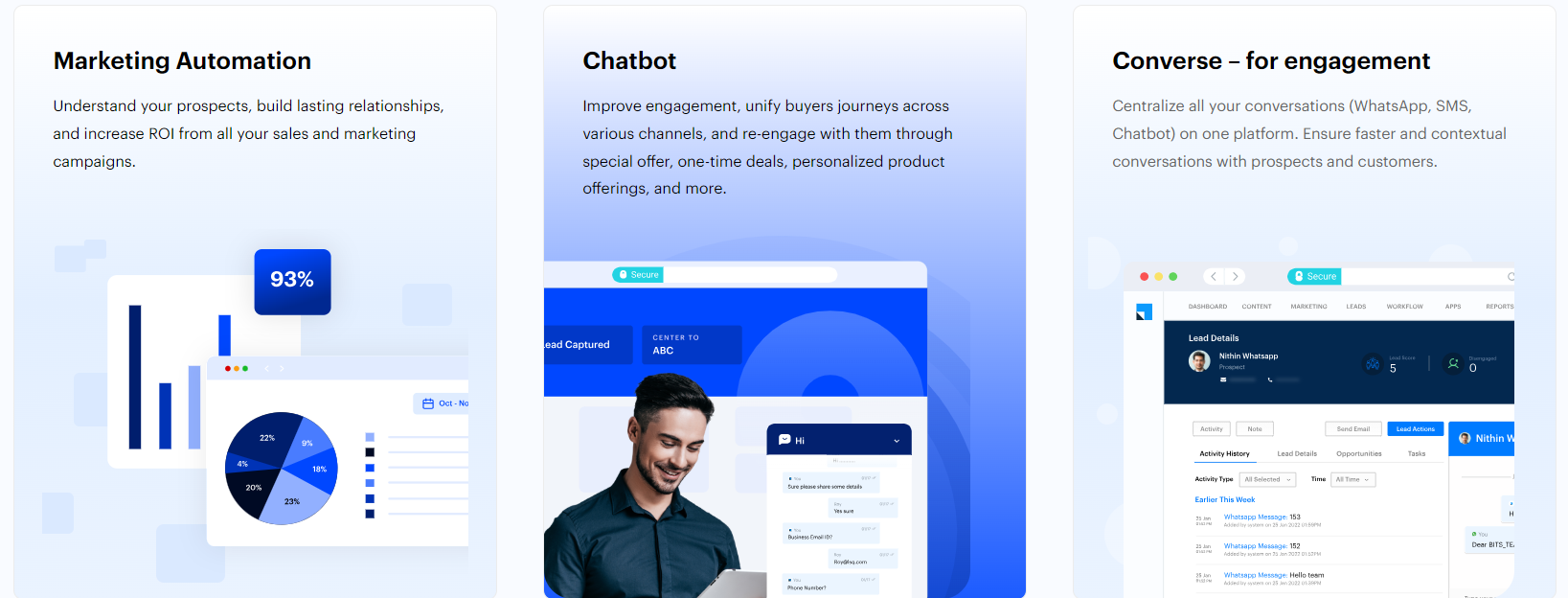
Features:
- Lead capture and scoring
- Marketing automation
- Email and SMS marketing
- Detailed analytics and reporting
- A scalable solution for small businesses, and businesses of all sizes.
Why it’s great: Strong lead management features to convert prospects into customers seamlessly.
3. Zoho CRM
Features:
- Contact and lead management
- Workflow automation
- Analytics and reporting
- Social media integration
Why it’s great: Customizable for any business.
4. Pipedrive

Features:
- Visual sales pipeline
- Activity reminders
- Email integration
- Reporting tools
Why it’s great: Easy to use and keeps sales teams focused on closing deals.
5. Freshsales
Features:
- AI-based lead scoring
- Built-in phone and email
- Sales pipeline management
- Customizable views
Why it’s great: Easy to use.
6. Insightly
Features:
- Contact management
- Project management tools
- Workflow automation
- Integrates with many apps
Why it’s great: Dual functionality for customer relationships and project timelines.
7. Agile CRM
Features:
- Contact management
- Email tracking
- Marketing automation
- Landing page builder
Why it’s great: Has many marketing tools for small businesses.
8. Nimble
Features:
- Social media integration
- Contact management
- Task and event tracking
- Team collaboration tools
Why it’s great: Apt for businesses interacting with customers on social media.
9. Capsule CRM

Features:
- Contact and lead management
- Task and opportunity tracking
- Custom fields and tags
- Integrates with other tools
Why it’s great: Easy to use, especially for small teams.
10. Keap (formerly Infusionsoft)
Features:
- Marketing automation
- Sales pipeline management
- Email campaigns
- E-commerce tools
Why it’s great: Automation saves time and increases customer engagement.
Each of these options has its own features and benefits for different needs and budgets.
Implementing a CRM for Your Small Business
Implementing a CRM for your small business can be a straightforward process, but it requires careful planning and preparation. Here are some tips to ensure a successful implementation:
- Define your goals: Before implementing a CRM, it’s crucial to define your goals and what you want to achieve with the software. Whether it’s improving customer relationships, increasing sales, or enhancing customer service, having clear objectives will guide your implementation process.
- Choose the right software: With numerous CRM software options available, it’s essential to choose the one that best fits your business needs. Consider factors such as ease of use, scalability, and the specific features that are most important to your business.
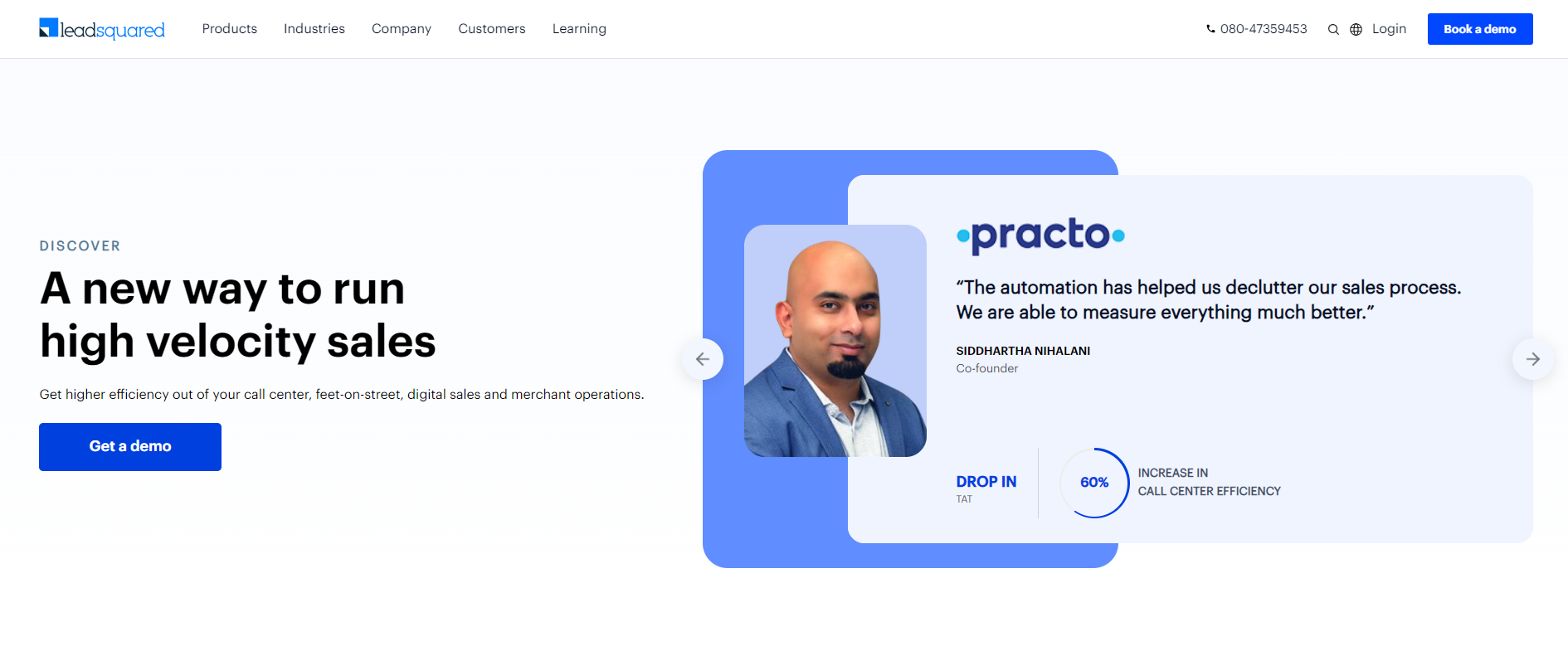
- Set up your data: Before implementing a CRM, you’ll need to set up your data, including customer contact information and sales pipeline data. Ensure that your data is accurate and up-to-date to maximize the effectiveness of your CRM.
- Train your team: Once you’ve implemented a CRM, it’s essential to train your team on how to use the software effectively. Provide comprehensive training and resources to ensure that everyone is comfortable with the new system.
- Monitor and evaluate: Finally, it’s essential to monitor and evaluate the effectiveness of your CRM and make adjustments as needed. Regularly review your CRM’s performance and gather feedback from your team to identify areas for improvement.
For a small business with only one salesperson, the ideal CRM software should be user-friendly, cost-effective, and capable of managing customer relationships without overwhelming features.
Ensure a successful CRM implementation that drives growth and enhances customer relationships for your small business. Ensure that it also has advanced project management tools, including post-deal tracking, as well as customized reporting and bulk email marketing.
If you want to know more about how to do it or are looking for the best CRM for your small business, look no further than LeadSquared. It has core features like contact management, lead tracking, and email integration, along with a host of other features. Choosing the right CRM is key for small businesses to manage customer relationships and operations.
Book a demo today, and leverage its advanced features available when you’re ready!








